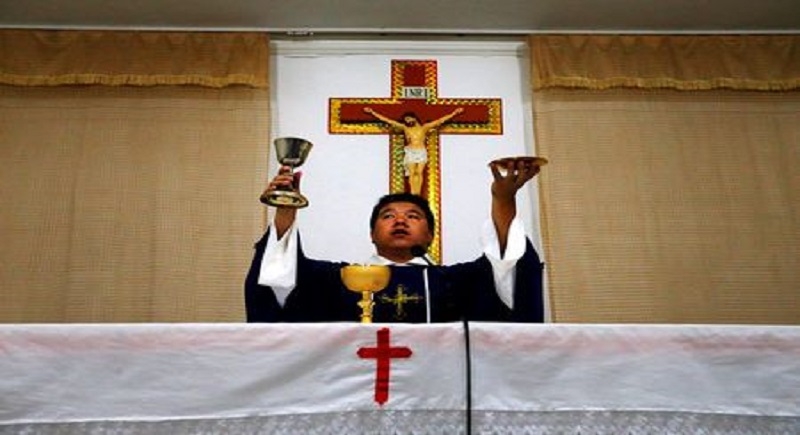China-Vatican pact brings Chinese church within the ambit of Pope

Beijing, Oct 5: The recent agreement between China and the Vatican has ended the “independence of Chinese church from the Pope bringing it within the ambit of the Holy Sea, says Prof Wang Meixiu of the National Academy of Social Sciences. Prof Wang is Member of the Institute for the Study of Religions, a branch of the National Academy of Social Sciences in Beijing, and observer of the Catholic Church in China.
The Chinese Ministry of Foreign Affairs and the Vatican Section for Relations between the States of the Holy Sea, reached a "tentative agreement" on September 22, 2018 on the future nomination and appointment of the bishops of China. For the Catholic Church it is a historical turning point, a unique event 70 years after the institution of the People's Republic of China.
Till now, the Bishops of China were appointed by the government of People’s Republic of China and the Pope had no authority to interfere in their appointments as in case of other countries worldwide. Pope is the spiritual and temporal head of the Catholic Church and in him vests the right and authority to appoint the bishops of respective countries. However, this was not allowed in the People’s Republic of China which is ruled by the Communist party government.
The provisional agreement, signed in Beijing by deputy foreign ministers from both sides, was announced as Pope Francis visited Lithuania on a four-day trip to the Baltic countries.
It gives the Holy See a decisive role in the appointment of all bishops in a country whose around 12 million Catholics have been split between an underground Church swearing loyalty to the Vatican and the state-supervised Catholic Patriotic Association.
The Vatican said the accord, a breakthrough after years of negotiations, was "not political but pastoral."
A Holy See statement did not mention Taiwan, which the Vatican recognizes diplomatically and which China sees as a renegade province.
However, diplomats have said the accord was a possible precursor to a resumption in diplomatic relations with Beijing after 70 years. Beijing does not allow countries to have diplomatic relations with both China and Taiwan.
Taiwan now has formal relations with only 17 states and the Vatican is the only one in Europe.
The Vatican said the pope hoped "a new process may begin that will allow the wounds of the past to be overcome, leading to the full communion of all Chinese Catholics."
Although the details of the agreement have not been disclosed, we can all imagine how after four years of dialogue, the agreement can only be a win-win for both parties.
Compared to its position on the two cardinal principles of relations with the Vatican in the 1980s and 1990s, there has been a very clear change by the Chinese government that cannot be ignored, Prof Wang said.
“We can believe that, within the dialogue between the Chinese government and the Vatican, over the next two or three years (in reference to what was said by Jeroom Heyndrickx to Radio France International, RFI) this agreement will favor the solution of the questions connected with the Chinese Catholic Church, the opening of a road to full communion and harmony between the official and the unofficial community, and with the Pope”, he added.
As for the Catholic Church, the request for dialogue with the Chinese government – which begun under the inspiration of Pope John Paul II and Pope Benedict XVI - with the aim of a full unity of communion for the Church in China - has taken a huge step forward. As is obvious, this dialogue has been the object of attention, analysis and embarrassment for the media and many members of the Church, Prof Wang said.